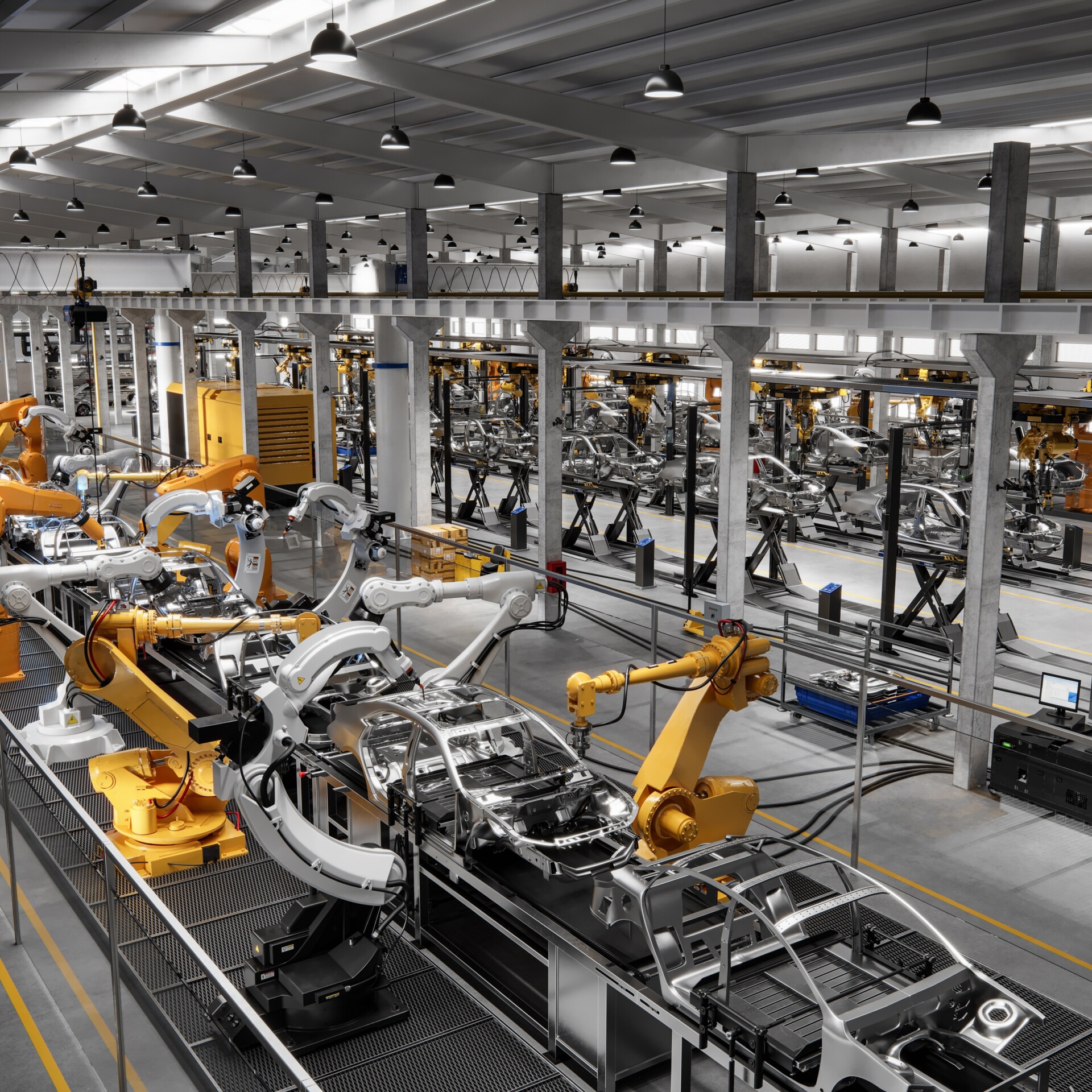Read next
Industry 4.0
Turbocharging artificial intelligence in production
Artificial Intelligence (AI) in Industry 4.0 still faces technological obstacles that make the use of AI difficult. Fraunhofer IKS is therefore developing a framework that supports and optimizes the data and AI lifecycle - and thus significantly increases the added value of AI in production.



© iStock.com/alvarez
Industry 4.0 describes the ongoing digitalization of production - machines and processes are intelligently networked, allowing more and more data to be generated. Artificial intelligence (AI) has the potential to generate information from this data to improve production and services. Possible applications include predictive maintenance, process optimization and automation, and quality control. However, this potential of AI in Industry 4.0 cannot yet be fully exploited: there are several technological barriers that limit the generation and processing of information.
Problems with applying AI in industry
The first obstacle is the so-called multi-vendor landscape in today's production plants, i.e. machines from different manufacturers of different technology generations with different - and often proprietary - communication interfaces and protocols. This heterogeneity prevents standardized data access. Instead, there are many technology-specific, siloed solutions, each of which requires domain knowledge.
The second barrier is the lack of support for the data scientist. They do not have domain knowledge and therefore need support in acquiring real-time or historical data. There is also the problem of incompatible, inconsistent, and incomplete data sets and missing metadata. This often makes the data processing process cumbersome, lengthy, manual, and time-consuming to coordinate.
The third obstacle is inflexible AI operations. AI applications often run rigidly in the cloud or on a local server. This means that the applications do not have the ability to make the best use of available resources. In addition, AI applications need to be updated to respond to changes in the plant or processes. All this is a challenge for the further digitalization of Industry 4.0. Therefore, these problems need a solution.
The solution: a framework for the data and AI life cycle
To overcome these problems, researchers at the Fraunhofer Institute for Cognitive Systems IKS are working on an open, interoperable and technology-neutral framework that supports and optimizes the data and AI lifecycle as part of the “REMORA — Multi-Stage Automated Continuous Delivery for AI-based Software & Services Development in Industry 4.0” project. The goal is to ensure an automated, continuous and dynamic process:

© Fraunhofer IKS
The framework developed by the REMORA project ensures a continuous process and thus supports the life cycle of data and artificial intelligence.
Specifically, the framework is intended to achieve the following objectives:
- support for the data scientist,
- automated and flexible AI integration and
- automation of AI processes.
The first step is to develop an interface for data scientists to support the AI development process. This interface allows data to be queried easily and uniformly without having to consider technology-specific aspects such as communication interfaces and protocols. The interface then internally handles the mapping to the technologies and the required data transformations. It also provides an overview of the topology, metadata, and an interface for training and operating an AI model. In addition to data scientists, this interface can also be used by non-experts, for example in conjunction with an AutoML framework.
Conference Paper, 2021
Towards a Self-Adaptive Architecture for Federated Learning of Industrial Automation Systems
Publica.fraunhofer.deManaging Artificial Intelligence Applications in Industry 4.0
An application management component then enables automated and flexible AI integration-from the component level all the way to the cloud. This is done based on required resources and optimization goals. In addition, the AI application manager, together with the data interface, ensures that the AI applications are networked to guarantee the flow of data.
Finally, an AI management component should enable the automation of AI processes, i.e., the automatic retraining and redeployment of an AI model to ensure continuous improvement of data analysis. For example, when machines are replaced, new training data can be automatically collected to train a new AI model. In addition, automated operations can be performed in response to data analysis (e.g., cooling in the event of overheating) or to increase the efficiency of real-time AI analysis (e.g., adjusting the sampling rate).
Simple AI integration for Industrie 4.0
For more information on the REMORA project, please visit our website.
For the production of the future, this means that the potential of AI in industry and Production 4.0 can be better exploited with this framework. Simplified and technology-neutral data access, support for AI development, and flexible and automated AI integration and updates increase the efficiency of AI operations.
This project is funded by the Bavarian Ministry of Economic Affairs, Regional Development and Energy as part of the project "REMORA - Multi-Stage Automated Continuous Delivery for AI-based Software & Services Development in Industry 4.0" and supported by Bayern Innovativ - Bayerische Gesellschaft für Innovation und Wissenstransfer mbH.


